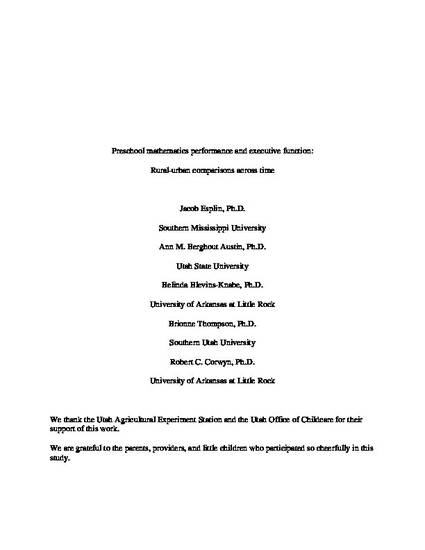
This longitudinal study, with urban and rural preschool children, examines the relationship between executive function (EF) and mathematics. A panel of direct and indirect measures of EF were used to determine which EF measures were most predictive and a measure of mathematics assessed both numeracy and geometry skill. One hundred eighteen children, ages 39 to 68 months, and their preschool teachers were included, with assessments given twice, about six months apart. EF measures were compared by the amount of variance in mathematics skill each claimed, including the influence of a child’s age, gender, and rural-urban context. Results suggest the child’s age determines if a panel of direct EF measures is a better predictor of numeracy and geometry skills than the use of a single EF measure. Different EF measures were more strongly related to numeracy versus geometry at Time 1 and Time 2. Differences unrelated to income were found between rural and urban children on numeracy skill but not geometry skill. These results are particularly important to state and regional early childhood directors who work across urban and rural areas, legislators and policymakers, teachers and parents.
Available at: http://works.bepress.com/ann_austin/57/
